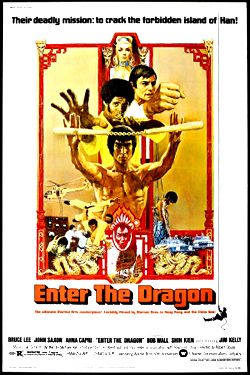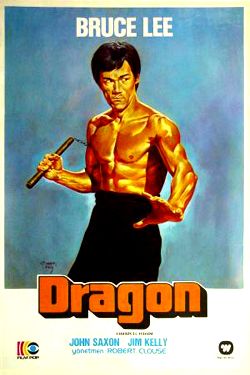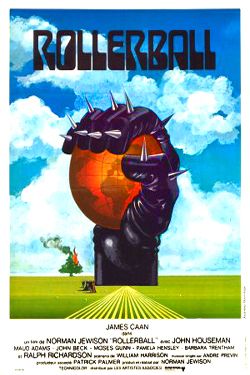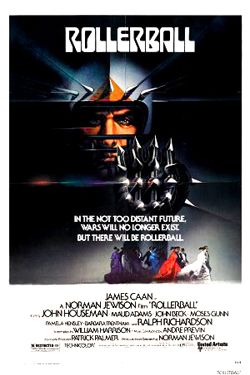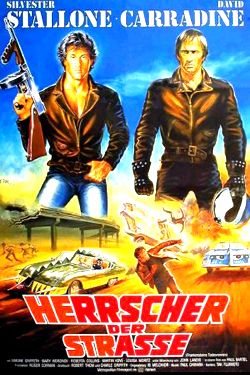
|
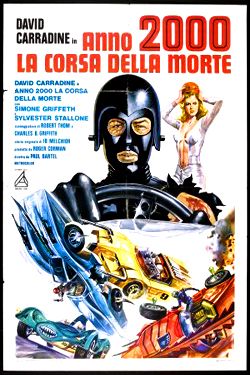
|
Year of release
1975
1975
Directed by
Paul Bartel
Paul Bartel
Written by
Robert Thom
Charles P. Griffith
Robert Thom
Charles P. Griffith
Starring
David Carradine
Sylvester Stallone
Simone Griffith
Sandy McCallum
Louisa Moritz
David Carradine
Sylvester Stallone
Simone Griffith
Sandy McCallum
Louisa Moritz
Death Race 2000
+
Plot – In a dystopian future, America has collapsed and is now a fascist state ruled by Mr President. The country's residents are kept entertained and in check by a series of violent, gladiatorial sporting exploits, including the annual Transcontinental Road Race. The race is a 3 day, coast-to-coast affair where its entrants are scored not just on time but on the amount of points they can gain for killing innocent people along the way. The competitors include Frankenstein (Carradine), a legendary racer and the government's champion; with his main competition coming in the form of 'Machine Gun' Joe Viterbo (Stallone), a man jealous of the attention Frankenstein gets and obsessed with defeating him. It is the 20th annual race, but this one will not run as smoothly as normal. At least not if a resistance group have their way; they plan to sabotage the race and lead a rebellion against Mr President's rule.
That's right ladies and gentlmen. The reviews thread which has brought you such esteemed cinematic classics as Rashomon, All the President's Men, Apocalypse Now, Bridge on the River Kwai, Rear Window and Some Like It Hot now tackles the 1975 Roger Corman B-movie classic, Death Race 2000.
And want an absolute blast it is! A demented, ghoulish delight which is actually rather camp and gloriously un-PC. With its excessive violence, gratuitous nudity and “let's just p*ss people off” attitude this is a film most certainly in exploitation territory. In fact this is the kind of thing I was expecting of grindhouse cinema but failed to get with Death Proof. And while it is as cheap and trashy as you'd expect, I also found it to be a smarter and overall better film than I was anticipating. I'm not going to make any great arguments for it being an immensely deep film it actually does have a few issues at its core, mostly highlighted as a result of its often surrealist satirical humour. It highlights how politicians can utilise sports as a way to try and control the public, an opium for the masses if you will. While at the same time perhaps criticising the bloodlust of the public for sports where the objective is pain - boxing, MMA, even motorsports when the only reason for watching is the crashes. It also has a bit of commentary on celebrity and its fandom, leading to a surprisingly touching and poignant moment where a girl sacrifices herself to help Frankenstein gain points as a way of proving how deep her love for him is.
David Carradine's Frankenstein is a giddy treat, and in terms of appearance I'm pretty sure is the b*stard offspring of Batman and the gimp from Pulp Fiction! However the star for me would have to be Stallone and his 'Machine Gun' Joe Viterbo character. Playing out like a stereotypical Italian-American hood (I was expecting him to throw out a “you mooks” at any moment) he is the big-mouthed, trash-talking villain of the piece. And Stallone seems to be having a great time as he hams it up in fine style, spouting out such ridiculous lines as “I think you're one very large baked potato.” He steals the show and it actually makes me wish he had taken on more villainous roles throughout his subsequent career. His showing makes for a really nice contrast when combined with Carradine's attempts at imbuing Franenstein with an almost Shakespearean gravitas.
Film Trivia Snippets - Originally the role of Frankenstein was actually offered to Peter Fonda. He rejected it however as he considered it to be too ridiculous for words. /// Sylvester Stallone actually wrote a good deal of his character's dialogue himself, including that fantastic 'baked potato' line which he ad-libbed. /// In a great representation of the film's tiny budget, most of the time the cars didn't actually work. So in order to get them to actually move they had to be pushed down hills! While the cameras were undercranked in an effort to create the illusion that the cars were moving a lot faster than they actually were. /// Along with David Carradine and Sylvester Stallone doing much of their own driving, the film's producer, Roger Corman, also did a lot of the driving in the scenes that were shot on streets. The custom cars built for the movie were not street legal and the stunt drivers didn't want to drive them for fear of being caught by the police, so Corman stepped in.
I get the feeling this film probably came into existence as a rejected Wacky Races script. I can just picture it being written in the writer's room while they were all off their heads on acid. It really is immensely reminiscent of that classic Hanna Barbara cartoon, from its tricked out cars to its gimmicky contestants with names like Calamity Jane and Matilda the Hun. For goodness sake it even has the old 'fake tunnel leading over a cliff' gag!  It just embraces the sheer stupidity and outlandish nature of its concept with such wild abandon. And it's a film which is unable to hide its low budget roots but is all the more charming for it. Though rather surprisingly given its budget the film does have some fine cinematography at times of the landscapes they drive through provided by Tak Fujimoto, a man who had already worked on Badlands and would go on to great success with films like The Silence of the Lambs and The Sixth Sense.
It just embraces the sheer stupidity and outlandish nature of its concept with such wild abandon. And it's a film which is unable to hide its low budget roots but is all the more charming for it. Though rather surprisingly given its budget the film does have some fine cinematography at times of the landscapes they drive through provided by Tak Fujimoto, a man who had already worked on Badlands and would go on to great success with films like The Silence of the Lambs and The Sixth Sense.
 It just embraces the sheer stupidity and outlandish nature of its concept with such wild abandon. And it's a film which is unable to hide its low budget roots but is all the more charming for it. Though rather surprisingly given its budget the film does have some fine cinematography at times of the landscapes they drive through provided by Tak Fujimoto, a man who had already worked on Badlands and would go on to great success with films like The Silence of the Lambs and The Sixth Sense.
It just embraces the sheer stupidity and outlandish nature of its concept with such wild abandon. And it's a film which is unable to hide its low budget roots but is all the more charming for it. Though rather surprisingly given its budget the film does have some fine cinematography at times of the landscapes they drive through provided by Tak Fujimoto, a man who had already worked on Badlands and would go on to great success with films like The Silence of the Lambs and The Sixth Sense. Though I am aware that with material like this there is a fine line between what some people will find to be titillating and devilishly entertaining, and what others will find to be excessive and distasteful. Roger Ebert for example actually gave this film 0 stars! and criticised it for its bloodshed and worried about what it would do to the children who saw it. However I just found the violence all too cartoonish, comic-book and obviously played for laughs to imagine how someone could get all that upset or turned off by it. The film's numerous deaths are all just so entertaining, and its humour so dark and mischievous. The absolute stand-out moment for me though would have to be the scene that takes place at a hospital on 'Euthanasia Day.' Every year when the race is taking place, doctors and nurses wheel out these old invalid patients and leave them like sitting ducks to be taken out by the drivers for points. I was already laughing at that perverse idea when the film put a twist on it; instead of going after the patients Frankenstein instead chooses to mow down the cruel doctors and nurses. A move that Junior Bruce sees as showing Frankenstein possesses “one hundred percent red-blooded American sense of humor.”
Conclusion - Cheap, trashy, camp, ridiculous.....and just a little bit brilliant! From its evocative, pulpy title to its pitch-black humour and pitch-perfect performances Death Race 2000 is an absolute joy. When honeykid placed this in his top 10 films I thought he may have been a little nuts. Now that I've seen the film however I no longer think this. It's a fantastically entertaining enterprise, one which I may actually have under-rated considering just how much I enjoyed it. My concern over rewatch value perhaps hampered its score, but if it holds up on repeat viewings then who knows, maybe I'll be joining honeykid I having it on my own list. I certainly found it to be a lot more entertaining than the Mad Max films which it apparently helped to inspire.
__________________
JayDee's Movie Musings (Reviews - Frailty / Total Recall / Lone Ranger / Nightcrawler / Whiplash / Imitation Game / Birdman / Avengers: Age of Ultron / Mad Max: Fury Road)

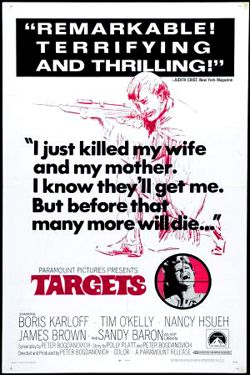
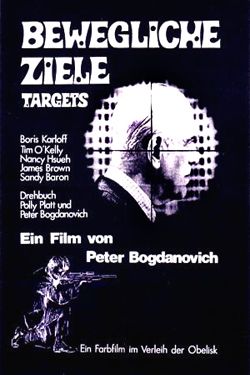


 Especially as you're not just interested to see it, you're convinced you will like it. Well if you don't like it blame UF, he reviewed it first and gave it a higher rating.
Especially as you're not just interested to see it, you're convinced you will like it. Well if you don't like it blame UF, he reviewed it first and gave it a higher rating. 